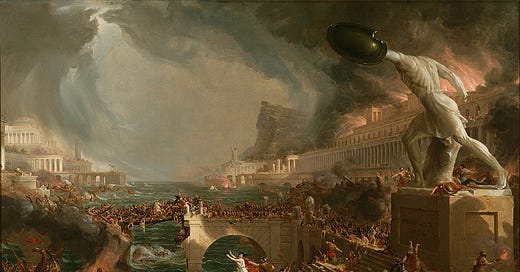Sponk.
Funnily enough, the moment you quoted your favorite line from Aristotle, I remembered being struck by it myself the last time I read the Ethics, about seven years ago. How sensible it was, how startling — common sense not always being the first trait you find in famous philosophers.
But this dependence we have, in matters of morality, this dependence on our inner sense of things, on instinct and wisdom that go beyond the exactitude of law and reason, it’s a troubling business, especially when you scale it up to the societal level.
I recently listened to the testimony of a woman who lost her beloved sister when a young man murdered her for no reason. In Christian love, she sought to forgive the killer, and did forgive him, and came to know him. She now campaigns not only against the death penalty but against life sentences without parole. Don't such lost children deserve a chance at redemption? she asks. And I answer: No! Not even a little. I stand in awe at this godly woman’s capacity to forgive, but societies need justice. They are formed in part to deliver justice. We need to know this justice will be served.
I am reading a very interesting book by R. R. Reno called The Return of the Strong Gods. I’m scheduled to interview Reno later this week (to be released next Wednesday). His thesis is that our dedication to open societies — societies not bound together by “strong gods” like religion and patriotism — was a reaction to the trauma of authoritarian madness that destroyed so much of the world during World Wars I and II. We mistook this temporal reaction for a timeless principle and it now threatens to unravel our societies, to make them prone to the sort of borderless, amoral, hyper-individualistic chaos that ironically leads to monarchy and then tyranny, a la Polybius’s cycle of regimes.
The fear of this chaos has many Catholics yearning for the medieval days of rule by throne and altar. Others try to imagine a retreat into small communities of believers gathered in the midst of mindless mayhem.
Myself, I have not lost my faith in liberty. But I think it’s true: freedom cannot stand without a common faith in God, a shared love of country and a belief, at the very least, that justice is the web that holds us together. The regimes that nearly destroyed our world in the 1930’s and 40’s were not evil because they believed strongly, but because they believed strongly in the wrong things.
We are not one world. We are one world of many nations. There is no reason to believe that the Islamic tyranny of Iran, or the Communist oppression of China would dissolve into sparkly democratic tolerance if only we were kinder to them.
Rather it is up to us to remember who we are and to commit to the uncertain mercies of being a secular nation of Christian men.
Love, Dad





I'm looking forward to that interview with Reno! I've been following the conversation generated by his book, though I haven't gotten around to reading it myself yet, very stimulating conversation.
I'm wondering what you mean by "secular" when you say we are a secular nation of Christian men? Do you mean profane? Worldly? Blasphemous? Maybe your book Kingdom of Cain will help me understand what you mean? I'm pretty skeptical of the use of the word myself. Even religious liberty it seems to me is a Christian value, not a generic good coming of a society that is magically neutral but fair. In my estimation, neutral secularity is a deception. Every system has a god. What is the best pathway to correcting it? That's a question that's harder to answer. I think that path of correction is the crying need of reformation in our time. Might we learn from the mistaken attempts in the past? I guess we'll see, but Reno's book seems a good place to start.
I've very much looking forward to that interview! Reno's a true intellectual, and I very much appreciate his calm and rational demeanor as he explains how he sees things.
As for those weird Catholics yearning for some sort of monarchy...that has to be some small but loud online cohort. I know of no one who thinks that. And for those who do...it smacks me as a desire to abdicate responsibility somehow. The time for monarchies like that is passed. Even the descendants of former monarchs have accepted it and ensconced themselves in democratic politics.